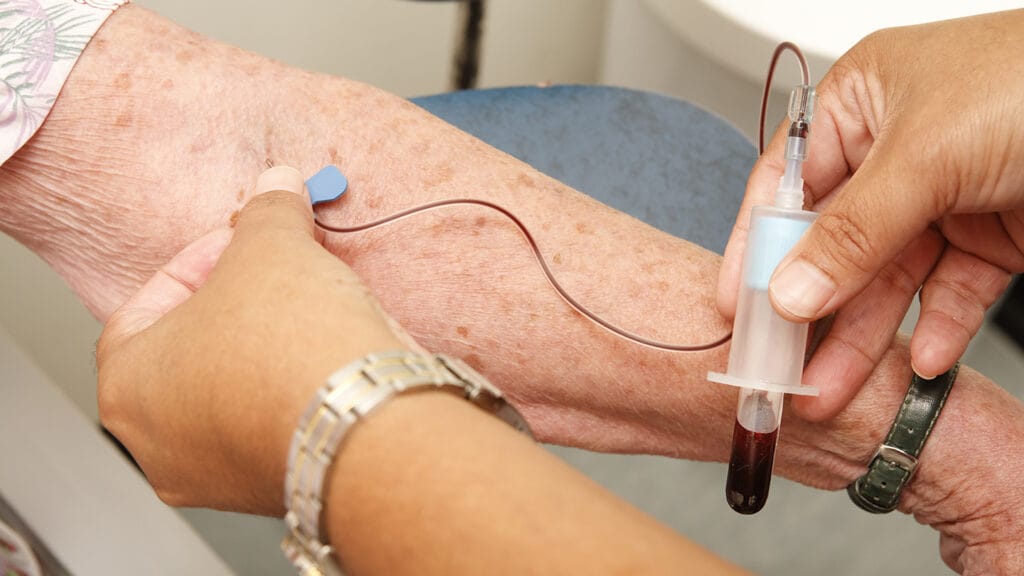
Three nursing homes have become the first in New York to be authorized to perform blood transfusions. That capability could be an important step in reducing expensive and uncomfortable hospital visits and hospitalizations for residents, according to a report released Tuesday by The McGuire Group, which operates the facilities.
Transfusions will be available for all residents with chronic or non-emergency needs and would be performed by registered nurses under the supervision of a physician. The state Department of Health approved the move.
The three facilities — all located near Buffalo, NY — had previously partnered with clinics to provide these non-emergency transfusions to residents, according to Andrea Czora, chief nursing officer at McGuire. Following the COVID-19 pandemic, however, many of those partnered services have ended and skilled nursing facilities increasingly have had to rely on hospitals or emergency rooms.
Such hospital visits can be both financially and mentally difficult for residents, Czora said, and sometimes can even lead to full hospitalizations.
“[Hospitalizations] can be so costly and so traumatic for the patient,” she told McKnight’s Long-Term Care News Tuesday. “We always want to treat in-place and be as non-disruptive as possible.”
Pioneering program
After consulting with the Department of Health for options and guidelines, the facilities were able to acquire New York’s first-ever official approval to provide transfusions on-site.
Czora said she hopes this sort of transfusion program will not begin and end with McGuire’s facilities.
“I feel like this is something that’s completely manageable in the long-term care setting, that it’s definitely something our nurses can provide in a safe environment,” she said. ”So I hope that this does take off and will be able to save the hospital systems in other areas some stress.”
There aren’t any confirmed financial incentives for the service yet, Czora said, though the facilities are pursuing insurance carve outs. Regardless, the provider has hopes that the program will provide a major quality-of-life improvement for residents and help build collaboration within the healthcare system and the community.
“Obviously we want to be good partners to the hospitals and good partners in the community, so this all feeds back into that,” Czora said.
Since the transfusions would be limited to chronic and non-emergency cases, Czora said that the facilities have the capability to schedule appointments within the busy schedules of their RNs. If necessary in the future, Czora said that licensed practical nurses also could be brought into the program after additional training. Because the program is still entering its earliest testing stages, however, there are no current plans to expand to LPNs.
The three facilities set up transfusion areas to maximize resident comfort — with reclining chairs, blankets and entertainment options such as TVs, magazines and iPads.





